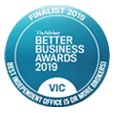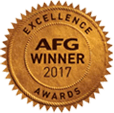
Key Asset Financing Considerations
The right asset financing option will depend on your individual business needs and financial situation. Key considerations include:
- INTEREST RATES, FEES, AND OTHER FINANCIAL TERMS AND CONDITIONS,
- REPAYMENT FLEXIBILITY TO SUIT YOUR BUSINESS’ CASH FLOW,
- THE TAX-DEDUCTIBILITY OF YOUR REPAYMENTS,
- HOW MUCH FINANCE YOU NEED,
- THE ASSET-FINANCING FINANCE TERM (WHICH USUALLY RANGES FROM ONE TO SEVEN YEARS),
- AND WHETHER IT’S BETTER TO OWN OR LEASE YOUR ASSET. FOR EXAMPLE, LEASING YOUR BUSINESS EQUIPMENT MAY ALLOW YOU TO UPGRADE MORE EASILY AS TECHNOLOGY INEVITABLY IMPROVES OVER TIME.

How can we Help?
Asset financing is an important business decision that can have serious implications for both your cash flow and your ability to grow your business. It’s important to understand the pros and cons of different asset financing options so that you can choose the most appropriate one for your business.
At ARG Finance, our experienced team of asset finance brokers can help you to find the right option. We’ll take the time to understand your business’ needs, goals and financial circumstances before recommending an appropriate lender and asset financing option for you.
Contact us today to find out how we can help your business with asset financing!
Types of Asset Finance
01. Secured Business Loan
Secured business loans require you to provide a business asset that you already own as collateral security for the lender in return for providing you with the funds you need. Secured loans can be a good option if you don’t qualify for an unsecured loan due to your credit history. However, it’s important to understand that if you default on your secured business loan repayments, the lender can seize and sell your asset to recover any outstanding debt. Secured business loan interest and associated fees and charges are tax-deductible against your business income, provided the asset is used in your business.
02. Finance Leases
Finance leases allow you to rent a business asset for a specific time period. Ownership of the asset remains with the lender, but you get to use it for the lease term and you’re usually responsible for any costs of maintaining it. Your rental payments on a leased asset are tax-deductible against business income.
03. Operating leases
An operating lease is similar to a finance lease, except that the asset owner (the lender) is responsible for the costs of any asset maintenance.
04. Hire Purchases
A hire purchase agreement involves you hiring the business asset from the lender for an agreed term. When you make your last hire payment, the ownership of the asset transfers to your business.
05. Novated Leases
A novated lease can be taken out on a new business vehicle as part of a tax-effective salary packaging arrangement for you or your staff. Ownership of the vehicle remains with the lender. Repayments are deducted from you or your employee’s before-tax salary.
06. Chattel Mortgages
A chattel mortgage is another option for financing a new business vehicle. It involves a lender providing you with a loan that is secured against the vehicle via a mortgage. Like any secured loan, the lender can repossess a vehicle under a chattel mortgage arrangement if you default on your regular loan repayments. When you have repaid the loan in full, the lender releases the mortgage.









































